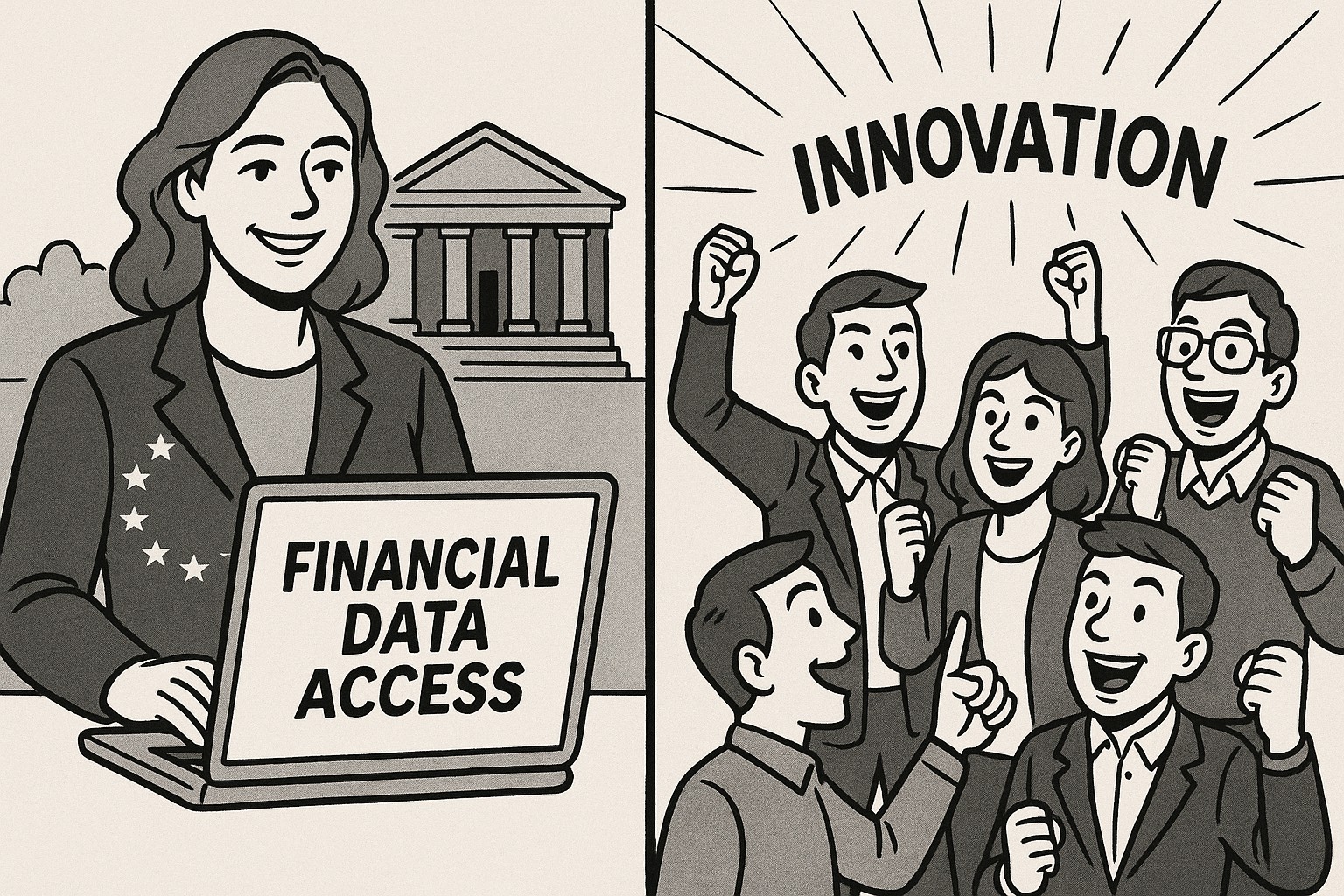
The European Union’s proposed Financial Data Access Regulation (FiDA) is emerging as a cornerstone in the ongoing transformation of Europe’s financial markets. The regulation aims to establish a comprehensive framework for data sharing across the financial sector, building on lessons from PSD2 and aligning with broader initiatives in open finance, digital identity, and the EU’s Digital Finance Strategy.
The Eurofi Copenhagen (Eurofi Financial Forum held in Copenhagen, a high-level platform bringing together EU policymakers, supervisors and financial industry leaders) discussions, summarized in the FiDA document, highlight both the opportunities and challenges of implementing this ambitious regulation.
A New Era of Financial Data Sharing
FiDA represents a paradigm shift from narrow, sector-specific rules on data access to a horizontal framework designed to cover multiple financial domains. The regulation seeks to empower consumers and businesses by giving them greater control over their financial data, while encouraging innovation through new data-driven services. Industry voices recognize FiDA’s potential to stimulate competition, product diversity, and cross-border integration, but they also stress the importance of balanced implementation.
Balancing Innovation and Security
While FiDA promises to unlock value from financial data, stakeholders warn against underestimating the risks to privacy, cybersecurity, and market integrity. The Eurofi discussions underline that innovation cannot come at the expense of consumer trust. A secure technical infrastructure, strong governance rules, and a clear liability framework are seen as indispensable. Without them, data sharing could create vulnerabilities that outweigh its benefits.
Industry Readiness and Regulatory Consistency
The debate also touches on the readiness of financial institutions to comply with FiDA. For many banks and insurers, the regulation implies substantial investments in IT systems, APIs, and compliance processes. Some stakeholders fear regulatory fragmentation if FiDA is implemented inconsistently across EU Member States. A harmonized approach, aligned with initiatives like eIDAS 2.0 (Regulation (EU) 2024/1183) and the forthcoming Digital Product Passport (DPP), is viewed as essential to avoid uneven competition and inefficiencies.
Consumer Empowerment at the Core
A recurring theme is the empowerment of consumers and SMEs. FiDA grants individuals explicit rights over how their financial data is used and shared, potentially transforming relationships between clients and financial providers. However, consumer groups stress that these rights must be matched with clear communication, digital literacy efforts, and safeguards against abusive practices.
Recommendations for Policymakers
The Eurofi perspectives converge on several recommendations:
- Ensure legal clarity on liability and responsibilities of data holders and third-party providers.
- Promote interoperability and standardization of APIs to reduce costs and barriers to entry.
- Align FiDA with broader EU frameworks, particularly in digital identity, cybersecurity, and sustainable finance.
- Provide transitional support for SMEs and smaller financial players to prevent market concentration.
- Maintain a strong focus on consumer protection and trust-building.
Conclusion
FiDA has the potential to become a transformative regulation in Europe’s digital financial landscape. By creating a trusted environment for financial data sharing, it can accelerate innovation, competition, and cross-border services. Yet, as the Eurofi Copenhagen debate makes clear, the success of FiDA will depend on policymakers’ ability to balance openness with security, innovation with stability, and consumer rights with industry feasibility.
If implemented thoughtfully, FiDA could turn Europe into a global leader in open finance – setting standards that other jurisdictions may follow.
FiDA and Trade & Logistics
An important dimension of the Financial Data Access Regulation (FiDA) is its relevance beyond the traditional financial sector. FiDA foresees that data related to trade and logistics – such as invoicing, supply chain records, freight and customs information – will need to be made available in a digital, standardized, and interoperable format. This is essential to enable innovative financial services, such as supply chain finance, trade credit, and digital guarantees, which rely heavily on accurate and timely logistics data. By integrating trade and logistics information into the open finance framework, FiDA seeks to strengthen the link between financial services and the real economy, reduce transaction costs, and support cross-border trade in the EU and globally.
Summary by DigitalTrade, on the basis of “Unlocking Europe’s Financial Data Future: Insights from the FiDA Debate.”
